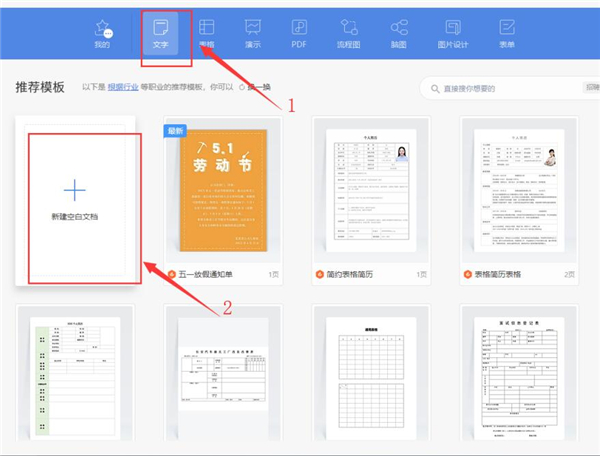课程的年代--线上学习的新领域
时间:2013-12-26
来源:互联网
时代变迁 学习的方式也不停在变
2012年 美国的一些院校 如哈佛 史丹福等等 试著把校内的一些课堂 放到线上 免费公开给有兴趣的人士参与及学习
这类公开的课程 有著一个特别的名称叫 MOOC
MOOC从最初发展到今天 已变得很有规范化
课程从最初只是少数一二个开始 发展到目前近600多门不同类到的课程 文理商电脑工程医学经济法律的课程都已备具
详细介绍如下
http://baike.soso.com/v59589750.htm
更具体的mooc介绍可以自行参考上面的连结
这里就介绍一些与电脑学习相关的免费课程
2012年 美国的一些院校 如哈佛 史丹福等等 试著把校内的一些课堂 放到线上 免费公开给有兴趣的人士参与及学习
这类公开的课程 有著一个特别的名称叫 MOOC
MOOC从最初发展到今天 已变得很有规范化
课程从最初只是少数一二个开始 发展到目前近600多门不同类到的课程 文理商电脑工程医学经济法律的课程都已备具
详细介绍如下
http://baike.soso.com/v59589750.htm
更具体的mooc介绍可以自行参考上面的连结
这里就介绍一些与电脑学习相关的免费课程
作者: dknydknydkny 发布时间: 2013-12-26
首先会介绍的是资料结构的课程 学过一些电脑程式的朋友都 大概都了解 数据结构/资料结构是提升个人编程能力的必要知识
当然 学习数据绪构也有一定难度 所以 这课程就是针料在这方面有需要的人而设 看过了这门课的介绍视频 感觉这门课的讲者水平不错 就跟大家介绍一下这门课 具体资料如下:
(转贴)
主办大学:台湾清华大学
开课日期:12月2日
课程说明
课程概述
「资料结构」是学习以聪明的方法去储存资料,使得我们在有需要的时候能够快速有效地把资料撷取。例如我们希望把学生某一科的考试成绩整理,使得我们能随时查询任何学生的排名。为了节省查询的时间,我们或许会把学生们的成绩从高至低排好,而不会以随意的顺序排列。〈对此问题,其实还有一个更好的方法呢!〉
在此课程,我们将针对各种基本的资料结构,进行理论探讨及分析,并辅以适量的程式训练,加强学生对资料结构实际应用的掌握。
先修课程
C/C++ Programming
指定用书
Introuction to Algorithms
Thomas H. Cormen, Charles E. Leiserson, Ronald L. Rivest, Clifford Stein
Fundamentals of Data Structures in C++
Ellis Horowitz, Sartaj Sahni, Dinesh Mehta
参考资料
Algorithms in C++
Robert Sedgewick
授课大纲
Topic 00 Overview
Topic 01 Getting Started
Topic 02 Heap
Topic 03 Sorting Lower Bound
Topic 04 Basic Data Structures I (List, Queue, Stack)
Topic 05 Basic Data Structures II (Tree, Graph)
Topic 06 Graph and Tree Traversals I (BFS, DFS)
Topic 07 Graph and Tree Traversals II (Tree Traversals, Expression Tree)
Topic 08 Graph and Tree Traversals III (Topological Sort)
Topic 09 Searching Set Data I (Binary Search Tree)
Topic 10 Searching Set Data II (AVL Tree)
Topic 11 Searching Set Data III (B-Tree)
Topic 12 Hashing (Chaining, Open Addressing)
Topic 13 Suffix Tree and Suffix Array
授课形式
预计有五份作业及三次考试 。
修课证明
修习完毕课程内容并完成所有课程要求,可获得「修课证明」
[ 本帖最后由 dknydknydkny 於 2013-11-29 02:15 AM 编辑 ]
当然 学习数据绪构也有一定难度 所以 这课程就是针料在这方面有需要的人而设 看过了这门课的介绍视频 感觉这门课的讲者水平不错 就跟大家介绍一下这门课 具体资料如下:
(转贴)
主办大学:台湾清华大学
开课日期:12月2日
课程说明
课程概述
「资料结构」是学习以聪明的方法去储存资料,使得我们在有需要的时候能够快速有效地把资料撷取。例如我们希望把学生某一科的考试成绩整理,使得我们能随时查询任何学生的排名。为了节省查询的时间,我们或许会把学生们的成绩从高至低排好,而不会以随意的顺序排列。〈对此问题,其实还有一个更好的方法呢!〉
在此课程,我们将针对各种基本的资料结构,进行理论探讨及分析,并辅以适量的程式训练,加强学生对资料结构实际应用的掌握。
先修课程
C/C++ Programming
指定用书
Introuction to Algorithms
Thomas H. Cormen, Charles E. Leiserson, Ronald L. Rivest, Clifford Stein
Fundamentals of Data Structures in C++
Ellis Horowitz, Sartaj Sahni, Dinesh Mehta
参考资料
Algorithms in C++
Robert Sedgewick
授课大纲
Topic 00 Overview
Topic 01 Getting Started
Topic 02 Heap
Topic 03 Sorting Lower Bound
Topic 04 Basic Data Structures I (List, Queue, Stack)
Topic 05 Basic Data Structures II (Tree, Graph)
Topic 06 Graph and Tree Traversals I (BFS, DFS)
Topic 07 Graph and Tree Traversals II (Tree Traversals, Expression Tree)
Topic 08 Graph and Tree Traversals III (Topological Sort)
Topic 09 Searching Set Data I (Binary Search Tree)
Topic 10 Searching Set Data II (AVL Tree)
Topic 11 Searching Set Data III (B-Tree)
Topic 12 Hashing (Chaining, Open Addressing)
Topic 13 Suffix Tree and Suffix Array
授课形式
预计有五份作业及三次考试 。
修课证明
修习完毕课程内容并完成所有课程要求,可获得「修课证明」
[ 本帖最后由 dknydknydkny 於 2013-11-29 02:15 AM 编辑 ]
作者: dknydknydkny 发布时间: 2013-12-27
再介绍别一门电脑课程--
机械学习基石
https://www.coursera.org/course/ntumlone (转贴)
Machine learning is the study that allows computers to adaptively improve their performance with experience accumulated from the data observed. The course teaches the most fundamental algorithmic, theoretical and practical tools that any user of machine learning needs to know. [机器学习旨在让电脑能由资料中累积的经验来自我进步。本课程将介绍各领域中的机器学习使用者都应该知道的基础演算法、理论及实务工具。]
语言: 中文
字幕: 中文
课程概述
Welcome! The instructor has decided to teach the course in Mandarin on Coursera, while the slides of the course will be in English to ease the technical illustrations. We hope that this choice can help introduce Machine Learning to more beginners in the Mandarin-speaking world. The English-written slides will not require advanced English ability to understand, though. If you can understand the following descriptions of this course, you can probably follow the slides. [欢迎大家!这门课将采用英文投影片配合华文的教学讲解,我们希望能藉这次华文教学的机会,将机器学习介绍给更多华人世界的入门者。课程中使用的英文投影片不会使用到艰深的英文,如果你能了解以下两段的课程简介,你应该也可以了解课程所使用的英文投影片。]
Machine learning is an exciting field with lots of applications in engineering, science, finance, and commerce. It is also a very dynamic field, where many new techniques are being designed every day, and the hot techniques and theories at times can rise and disappear rapidly. Thus, users of machine learning from other fields often face the problem of choosing or using the techniques properly. In this course, we emphasize the necessary fundamentals that give any student of machine learning a solid foundation, and enable him or her to exploit current techniques properly, explore further techniques and theories, or perhaps to contribute their own in the future.
The course roughly corresponds to the first half-semester of the National Taiwan University course "Machine Learning", and the second half-semester is expected to be on Coursera under the name "Machine Learning Techniques" soon in the future. Based on five years of teaching this popular course successfully (including winning the most prestigious teaching award of National Taiwan University) and discussing with many other scholars actively, the instructor chooses to focus on what he believes to be the core topics that every student of the subject should know. The students shall enjoy a story-like flow moving from "When Can Machines Learn" to "Why", "How" and beyond.
授课大纲
Each of the following items correspond to approximately one hour of video lecture. [以下的每个小项目对应到约一小时的线上课程]
When Can Machines Learn? [何时可以使用机器学习]
-- The Learning Problem [机器学习问题]
-- Learning to Answer Yes/No [二元分类]
-- Types of Learning [各式机器学习问题]
-- Feasibility of Learning [机器学习的可行性]
Why Can Machines Learn? [为什么机器可以学习]
-- Training versus Testing [训练与测试]
-- Theory of Generalization [举一反三的一般化理论]
-- The VC Dimension [VC 维度]
-- Noise and Error [杂讯一错误]
How Can Machines Learn? [机器可以怎么样学习]
-- Linear Regression [线性回归]
-- Linear `Soft' Classification [软性的线性分类]
-- Linear Classification beyond Yes/No [二元分类以外的分类问题]
-- Nonlinear Transformation [非线性转换]
How Can Machines Learn Better? [机器可以怎么样学得更好]
-- Hazard of Overfitting [过度训练的危险]
-- Preventing Overfitting I: Regularization [避免过度训练一:控制调适]
-- Preventing Overfitting II: Validation [避免过度训练二:自我检测]
-- Three Learning Principles [三个机器学习的重要原则]
先修知识
The basic knowledge on Calculus (differentiation), Linear Algebra (vector and matrix operations) and Probability (independent and dependent events) will be helpful. Some homeworks will require writing simple code so some programming background (on any platform) is recommended. [我们希望修课的同学对於基本的微分、向量与矩阵运算、及机率的工具有所了解。有些作业会需要写作或执行一些程式,所以我们建议修课的同学能在你所熟悉的平台上有一些程式写作的背景。]
参考资料
Although the lectures are designed to be self-contained, we recommend (but do not require) that students refer to the book Learning from Data, which contains most of the materials covered in this course. [虽然这门课的录影课程及投影片应该足以帮大家了解所有的内容,我们推荐有兴趣的同学们阅读 Learning from Data 一书,该书包含了本课程中所介绍的大部份的内容。]
授课形式
The class will consist of lecture videos that contain integrated quiz questions. There will also be bi-weekly homeworks that are not part of video lectures. [这门课主要以线上录影课程及其中的小测验组成,每两周我们会有另外的作业练习。]
常见问题
Will I get a statement of accomplishment after completing this class? [我在完成课程后,是否能得到「修业合格证明」?]
Yes. Students who pass the basic course requirements will receive a statement of accomplishment signed by the instructor. [是的,当同学成功地达成课程的基本要求后,即可收到由授课老师签署的「修业合格证明」。]
What equipment/resource do I need for taking this class? [修习此课需要哪些设备/资源?]
You need access to some computing platform to run the code for some of the homework problems, and you can basically use any programming language of your choice. Each homework set should take no more than a whole day of your "machine time" on a modern PC if the algorithms are properly implemented. So you do not need a super-fast computing resource. [在有些作业的问题中,你需要在某些计算平台上执行程式,而你可以使用任何你所爱的程式语言。如果你正确的撰写演算法,在一般的个人电脑上,每次作业所需的「机器时间」应该不到一天。所以你不需要超快的运算资源。]
What can I learn from this course? [我在此课程可以有什么收获?]
A solid foundation of machine learning! [对机器学习基础有坚固的了解!]
[ 本帖最后由 dknydknydkny 於 2013-12-1 01:46 AM 编辑 ]
机械学习基石
https://www.coursera.org/course/ntumlone (转贴)
Machine learning is the study that allows computers to adaptively improve their performance with experience accumulated from the data observed. The course teaches the most fundamental algorithmic, theoretical and practical tools that any user of machine learning needs to know. [机器学习旨在让电脑能由资料中累积的经验来自我进步。本课程将介绍各领域中的机器学习使用者都应该知道的基础演算法、理论及实务工具。]
语言: 中文
字幕: 中文
课程概述
Welcome! The instructor has decided to teach the course in Mandarin on Coursera, while the slides of the course will be in English to ease the technical illustrations. We hope that this choice can help introduce Machine Learning to more beginners in the Mandarin-speaking world. The English-written slides will not require advanced English ability to understand, though. If you can understand the following descriptions of this course, you can probably follow the slides. [欢迎大家!这门课将采用英文投影片配合华文的教学讲解,我们希望能藉这次华文教学的机会,将机器学习介绍给更多华人世界的入门者。课程中使用的英文投影片不会使用到艰深的英文,如果你能了解以下两段的课程简介,你应该也可以了解课程所使用的英文投影片。]
Machine learning is an exciting field with lots of applications in engineering, science, finance, and commerce. It is also a very dynamic field, where many new techniques are being designed every day, and the hot techniques and theories at times can rise and disappear rapidly. Thus, users of machine learning from other fields often face the problem of choosing or using the techniques properly. In this course, we emphasize the necessary fundamentals that give any student of machine learning a solid foundation, and enable him or her to exploit current techniques properly, explore further techniques and theories, or perhaps to contribute their own in the future.
The course roughly corresponds to the first half-semester of the National Taiwan University course "Machine Learning", and the second half-semester is expected to be on Coursera under the name "Machine Learning Techniques" soon in the future. Based on five years of teaching this popular course successfully (including winning the most prestigious teaching award of National Taiwan University) and discussing with many other scholars actively, the instructor chooses to focus on what he believes to be the core topics that every student of the subject should know. The students shall enjoy a story-like flow moving from "When Can Machines Learn" to "Why", "How" and beyond.
授课大纲
Each of the following items correspond to approximately one hour of video lecture. [以下的每个小项目对应到约一小时的线上课程]
When Can Machines Learn? [何时可以使用机器学习]
-- The Learning Problem [机器学习问题]
-- Learning to Answer Yes/No [二元分类]
-- Types of Learning [各式机器学习问题]
-- Feasibility of Learning [机器学习的可行性]
Why Can Machines Learn? [为什么机器可以学习]
-- Training versus Testing [训练与测试]
-- Theory of Generalization [举一反三的一般化理论]
-- The VC Dimension [VC 维度]
-- Noise and Error [杂讯一错误]
How Can Machines Learn? [机器可以怎么样学习]
-- Linear Regression [线性回归]
-- Linear `Soft' Classification [软性的线性分类]
-- Linear Classification beyond Yes/No [二元分类以外的分类问题]
-- Nonlinear Transformation [非线性转换]
How Can Machines Learn Better? [机器可以怎么样学得更好]
-- Hazard of Overfitting [过度训练的危险]
-- Preventing Overfitting I: Regularization [避免过度训练一:控制调适]
-- Preventing Overfitting II: Validation [避免过度训练二:自我检测]
-- Three Learning Principles [三个机器学习的重要原则]
先修知识
The basic knowledge on Calculus (differentiation), Linear Algebra (vector and matrix operations) and Probability (independent and dependent events) will be helpful. Some homeworks will require writing simple code so some programming background (on any platform) is recommended. [我们希望修课的同学对於基本的微分、向量与矩阵运算、及机率的工具有所了解。有些作业会需要写作或执行一些程式,所以我们建议修课的同学能在你所熟悉的平台上有一些程式写作的背景。]
参考资料
Although the lectures are designed to be self-contained, we recommend (but do not require) that students refer to the book Learning from Data, which contains most of the materials covered in this course. [虽然这门课的录影课程及投影片应该足以帮大家了解所有的内容,我们推荐有兴趣的同学们阅读 Learning from Data 一书,该书包含了本课程中所介绍的大部份的内容。]
授课形式
The class will consist of lecture videos that contain integrated quiz questions. There will also be bi-weekly homeworks that are not part of video lectures. [这门课主要以线上录影课程及其中的小测验组成,每两周我们会有另外的作业练习。]
常见问题
Will I get a statement of accomplishment after completing this class? [我在完成课程后,是否能得到「修业合格证明」?]
Yes. Students who pass the basic course requirements will receive a statement of accomplishment signed by the instructor. [是的,当同学成功地达成课程的基本要求后,即可收到由授课老师签署的「修业合格证明」。]
What equipment/resource do I need for taking this class? [修习此课需要哪些设备/资源?]
You need access to some computing platform to run the code for some of the homework problems, and you can basically use any programming language of your choice. Each homework set should take no more than a whole day of your "machine time" on a modern PC if the algorithms are properly implemented. So you do not need a super-fast computing resource. [在有些作业的问题中,你需要在某些计算平台上执行程式,而你可以使用任何你所爱的程式语言。如果你正确的撰写演算法,在一般的个人电脑上,每次作业所需的「机器时间」应该不到一天。所以你不需要超快的运算资源。]
What can I learn from this course? [我在此课程可以有什么收获?]
A solid foundation of machine learning! [对机器学习基础有坚固的了解!]
[ 本帖最后由 dknydknydkny 於 2013-12-1 01:46 AM 编辑 ]
作者: dknydknydkny 发布时间: 2013-12-27
相关阅读 更多
热门阅读
-
 office 2019专业增强版最新2021版激活秘钥/序列号/激活码推荐 附激活工具
office 2019专业增强版最新2021版激活秘钥/序列号/激活码推荐 附激活工具
阅读:74
-
 如何安装mysql8.0
如何安装mysql8.0
阅读:31
-
 Word快速设置标题样式步骤详解
Word快速设置标题样式步骤详解
阅读:28
-
 20+道必知必会的Vue面试题(附答案解析)
20+道必知必会的Vue面试题(附答案解析)
阅读:37
-
 HTML如何制作表单
HTML如何制作表单
阅读:22
-
 百词斩可以改天数吗?当然可以,4个步骤轻松修改天数!
百词斩可以改天数吗?当然可以,4个步骤轻松修改天数!
阅读:31
-
 ET文件格式和XLS格式文件之间如何转化?
ET文件格式和XLS格式文件之间如何转化?
阅读:24
-
 react和vue的区别及优缺点是什么
react和vue的区别及优缺点是什么
阅读:121
-
 支付宝人脸识别如何关闭?
支付宝人脸识别如何关闭?
阅读:21
-
 腾讯微云怎么修改照片或视频备份路径?
腾讯微云怎么修改照片或视频备份路径?
阅读:28















